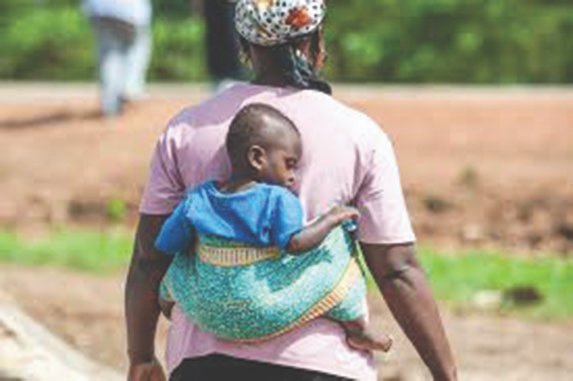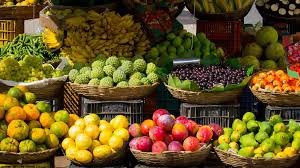Nutrition
Overcoming insomnia with diet

Insomnia
Some people with insomnia may fall asleep easily enough but wake up too soon. Otherssimply can’t fall asleep, or they have trouble both falling asleep and staying asleep.
The result is low-quality sleep that doesn’t make you feel refreshed when you wake up. Often, insomnia is a symptom or a side effect of some other problems like:
• Illness, such as heart or lung disease
• Pain, anxiety, or depression
• Drugs that delay or disrupt sleep
• Caffeine, tobacco, alcohol, and other substances that affect sleep
• A poor sleep environment or a change in sleep routine
If the cause of the insomnia is known, then the insomnia should improve once the underlying cause is treated. However, there is a type of insomnia (primary insomnia) which is not as a result of any underlying disease and usually last at least one month.
Nutrition and lifestyle changes go a long way in the battle against insomnia.
Below are some of the foods that may help:
• Melatonin rich foods such as oats, nuts, fish and berries.
• Tryptophan rich foods such as spinach, eggs, and crabs.
• Niacin rich foods such asmushrooms, tuna, turkey, and anchovies.
• Vitamin B6 rich foods such as avocados, carrots, bananas, and organ meat.
Lifestyle changes
• Avoid late night watching of movies, TV shows, social media, etc.
• Have a separate bedroom away from all sorts of destruction
• Change uncomfortable beds, pillows, and sheets
• Avoid late night eating and drinking of water
• Take warm baths in the evening
• Add some forms of exercise to your lifestyle routine
It can be very unsettling dealing with insomnia, especially when we don’t know the cause. But applying the dietary and lifestyle changes mentioned above can not only treat insomnia, but also improve our quality of life in general.
Going to sleep should be a breeze in no time, with sweet dreams just around the corner.
By Dr Bernice Korkor Asare
Kind courtesy of:
Holistic Health Consult
“Your diet your health, your health your wealth”
E-mail: info@holistichealthconsult.org
Nutrition
The First 1,000 Days: Why Ghana’s investment in maternal and child nutrition matters for human capital development

From the start of pregnancy to a child’s second birthday, the first 1,000 days, represents the most important window for human development. Good nutrition shapes the foundation.
During this short window, the body and brain grow at a pace that will never be repeated. When nutrition is inadequate, the damage to physical growth and cognitive development is often permanent. No later investment in education or healthcare can fully reverse these losses. Ghana’s future workforce and economic progress depend on getting nutrition right during this critical period.
Science is clear. A baby’s brain develops rapidly during pregnancy and early childhood, forming the foundation for all future learning and health. Adequate nutrients during pregnancy support the formation of neural connections that underpin learning, memory, and emotional regulation. When pregnant women lack essential nutrients, their babies begin life at a disadvantage. When young children experience severe malnutrition, they miss critical growth periods that do not return.
Ghana faces serious challenges during this critical window. An estimated 68,517 children suffer from severe acute malnutrition. Between 37 and 63 percent of pregnant women are anemic, with iron deficiency particularly common in late pregnancy. These problems translate directly into diminished potential. Malnourished children perform worse in school, earn less as adults, and face higher risks of chronic diseases. The economic losses multiply across generations.
Research worldwide shows that nutrition investments during the first 1,000 days deliver exceptional returns. Well-nourished children learn better, perform better academically, and become more productive adults. Countries that invest in early nutrition experience faster economic growth through stronger, more productive workforces.
Ghana already has effective solutions. Multiple Micronutrient Supplements for pregnant women reduce the risk of low birth weight and preterm birth, while Ready-to-Use Therapeutic Food enables high recovery rates for children with severe acute malnutrition. Both are approved in Ghana’s health guidelines. The problem is not lack of knowledge but lack of access. Coverage remains limited because financing depends heavily on donor support rather than sustainable domestic systems.
Integrating these nutrition interventions into the National Health Insurance Scheme would help close this gap. With a large proportion of mothers and young children already enrolled, NHIS provides a platform for nationwide reach. Recent reforms to health financing further strengthen the case for prioritising essential nutrition services within the scheme.
Ghana’s development agenda emphasizes industrialisation, innovation, and economic transformation. Achieving these goals requires a workforce capable of learning, problem-solving, and sustained productivity. Human capital development, however, does not begin at universities or training centers. It begins before birth.
The first 1,000 days offer no second chances. Each year of delay means another group of children enter adulthood carrying preventable disadvantages. Investing in nutrition during this critical window is not only a health priority; it is a foundational investment in Ghana’s economic future.
Feature article by Womec, Media and Change under its Nourish Ghana: Advocating for Increased Leadership to Combat Malnutrition project
Join our WhatsApp Channel now!
https://whatsapp.com/channel/0029VbBElzjInlqHhl1aTU27

Nutrition
Importance of Fruits During Ramadan

Ramadan, the ninth month of the Islamic lunar (Hijri) calendar, is a period of fasting, reflection, and spiritual growth. A vital part of observing Ramadan is Iftar—the evening meal with which Muslims break their daily fast at sunset. Fruits play an essential role in Iftar, providing nutrition, hydration, and energy after long hours of fasting.
Here are some of the most recommended fruits to include in your Ramadan meals:
Dates
Dates are traditionally used to break the fast. They are rich in sugar, fibre, potassium, vitamins, and minerals, helping to restore energy quickly after fasting.
Watermelon
Watermelon is highly consumed for hydration, as it is composed mostly of water. It can be enjoyed in slices or blended into refreshing smoothies.
Bananas
Bananas are an excellent source of potassium, which helps maintain fluid balance and reduce thirst. They also provide natural energy to keep you going after fasting.
Apples
Apples are fibre-rich and nutritious, promoting heart health, aiding weight management, and improving digestion.
Cucumber
Cucumber is one of the best hydrating fruits, composed of water and fibre, which aids digestion while revitalising the body.
Pawpaw (Papaya)
Pawpaw is low in calories and sugar, rich in fibre, and promotes healthy digestion, hair, and skin. It is a nutritious addition to any Iftar meal.
Including a variety of these fruits during Ramadan not only helps replenish lost nutrients but also supports overall health, digestion, and hydration throughout the fasting period.
By Linda Abrefi Wadie
Join our WhatsApp Channel now!
https://whatsapp.com/channel/0029VbBElzjInlqHhl1aTU27







